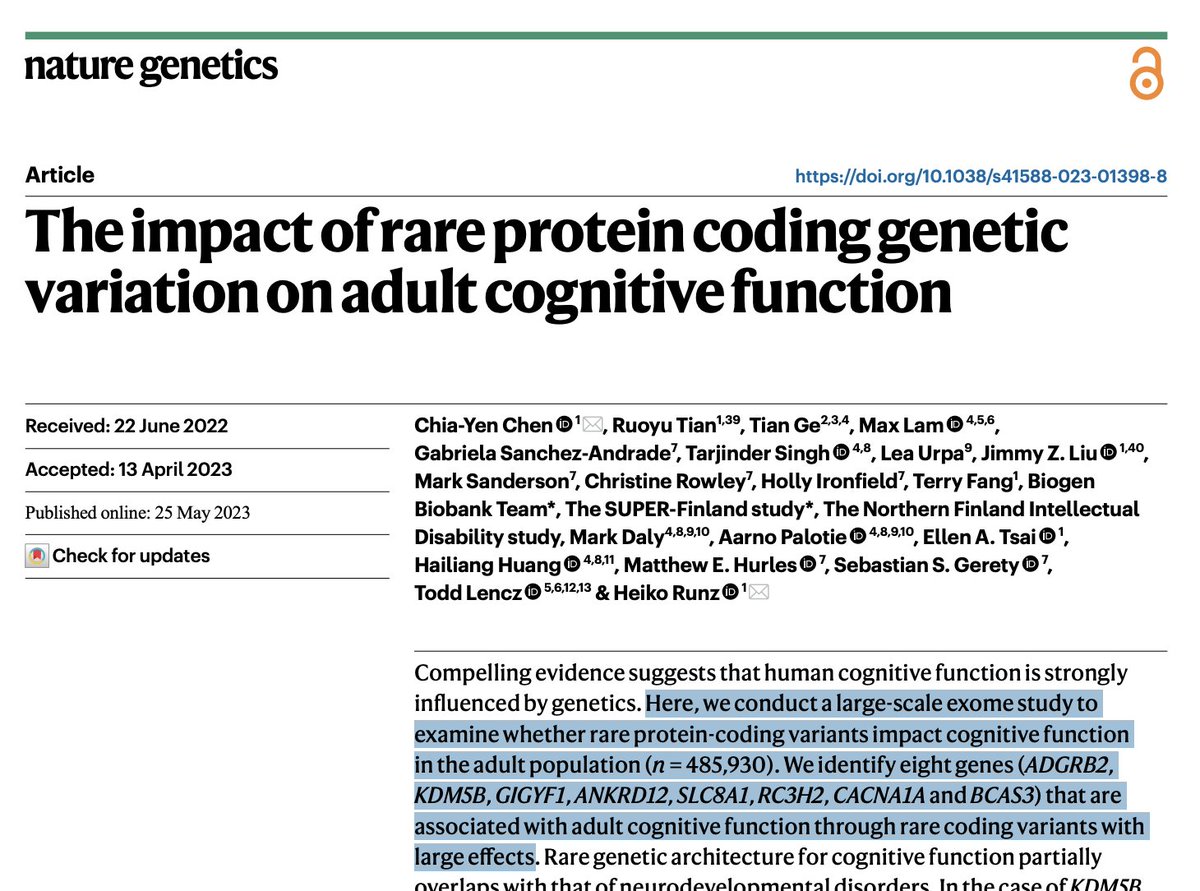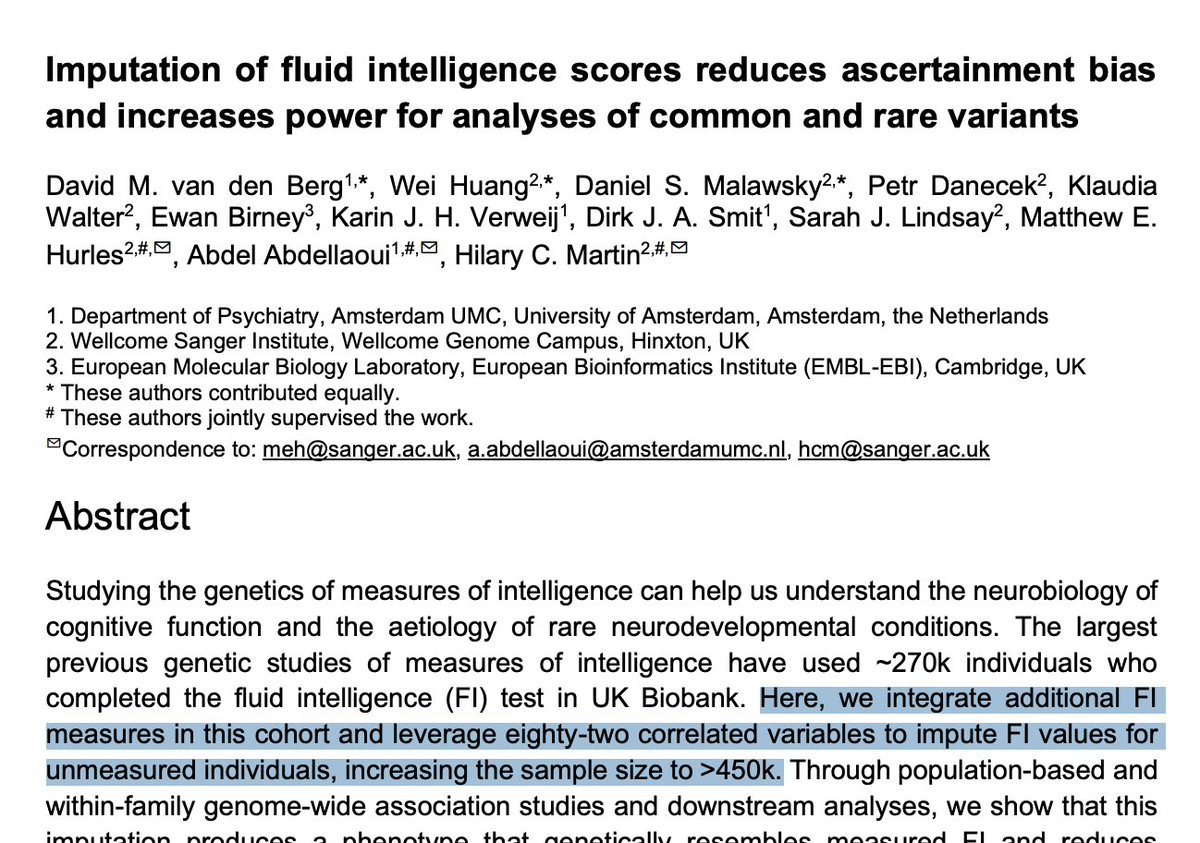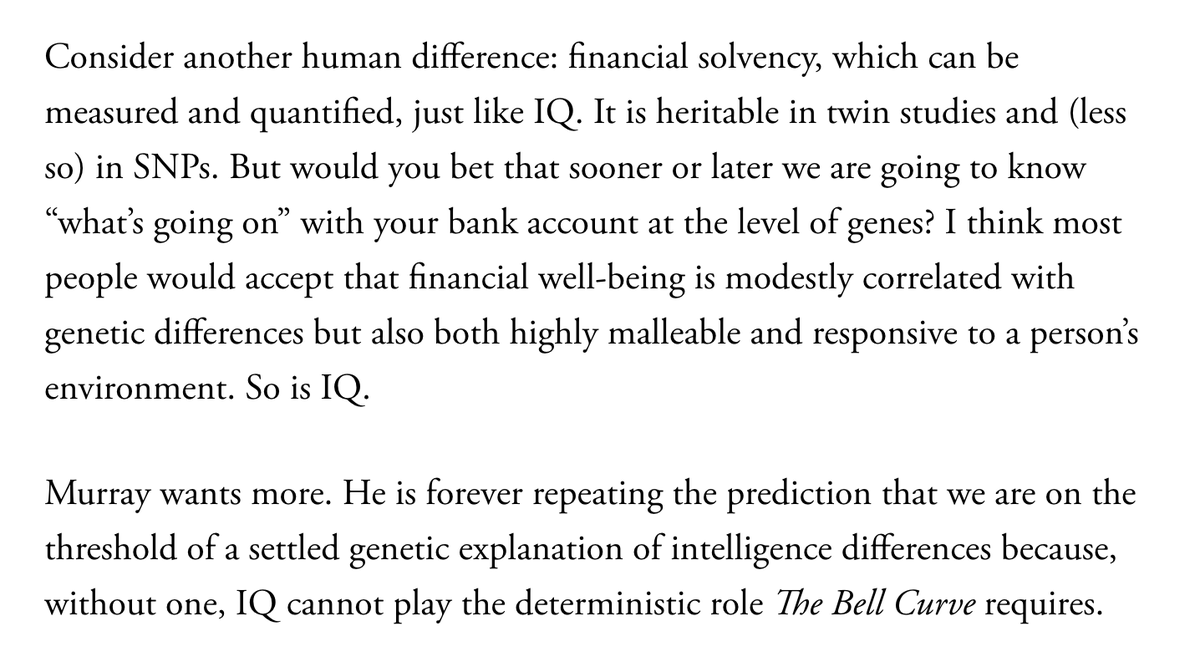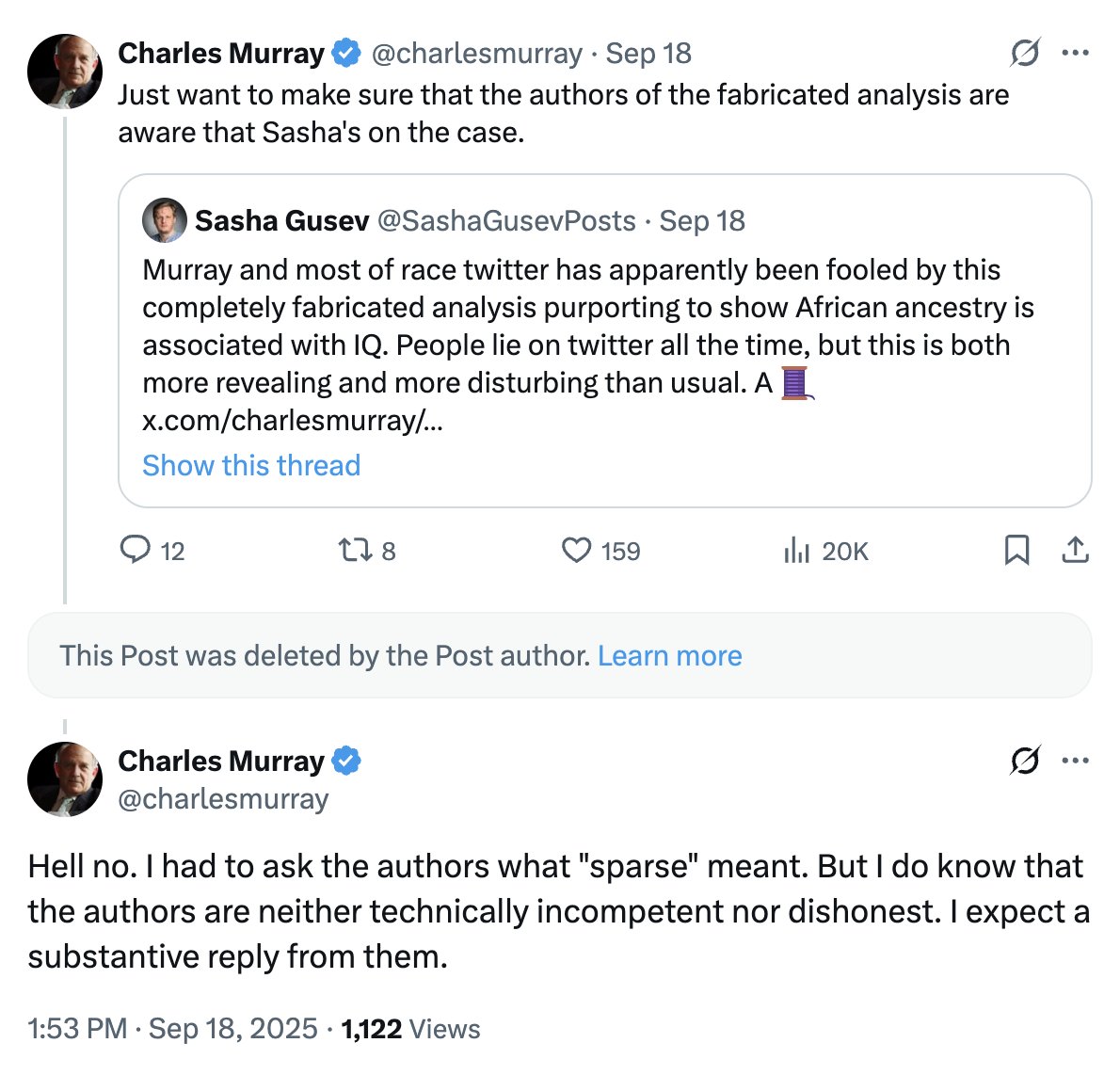Eric Turkheimer has a good piece about a bet he made with Charles Murray regarding the genetic understanding of IQ (or, really, the lack of it). Murray being so wrong in his prediction should make us question his world model, but it's also worth commenting on his response. 
https://twitter.com/TheAtlantic/status/1977762525241381296

Murray has, for some time now, been workshopping the excuse that progress on IQ genetics was blocked by researchers being denied the access to the relevant databases. This is patently untrue! 

First, one of the largest genetic analyses to date of *any* trait is of educational attainment, a phenotype Murray himself has used as a proxy for intelligence. Surely a study of 3 million should have been enough to satisfy Murray's prediction.
https://x.com/SashaGusevPosts/status/1775652749813911809
Second, a massive (n=~500k) rare variant study of cognitive function (including a short IQ test) was published in 2023 in one of the most prestigious journals in the field. That study identified a mere eight genes, and the overall variance explained was just 0.15% (that's right). 



Finally, a recent pre-print imputed higher quality IQ into the full >450k UK Biobank population. Putting *that* data together with the largest available studies of IQ produced a common variant genetic score that explained ... 2.6% of the trait. 



In short, the genetic mechanisms of IQ have been extraordinarily well studied both from the rare and common variant perspective and now explain ... essentially none of it. Turkheimer clearly wins the bet, and makes a compelling case that the whole premise was flawed: 

So what's @charlesmurray up to now? He's been laundering fake analyses that he himself doesn't understand from anonymous race bloggers who can't be bothered to write them up (FWIW "substantive reply" did not come). Not with a bang but with a whimper.

https://x.com/SashaGusevPosts/status/1968671431387951148

• • •
Missing some Tweet in this thread? You can try to
force a refresh



















